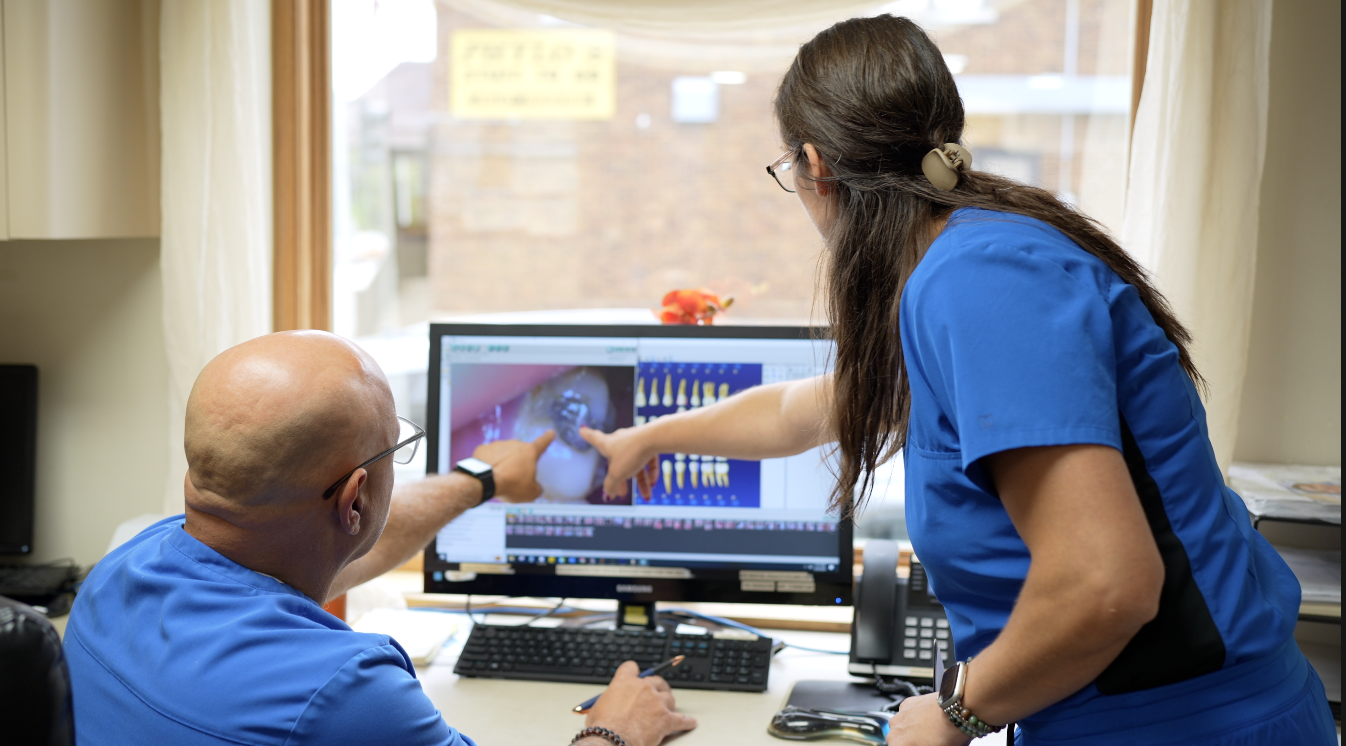Emergency Care for a Swollen Jaw: What You Need to Know
A swollen jaw can be more than just uncomfortable; it often signals a serious dental issue that requires immediate attention. Whether caused by an infection, an injury, or an abscessed tooth, it’s crucial not to overlook this symptom. At Emergency Dental of Cincinnati, we specialize in providing emergency care for a swollen jaw, delivering quick and effective treatment for this and other dental emergencies.
Understanding Jaw Swelling
Waking up with a swollen jaw can be alarming. The pain and discomfort can interfere with everyday activities, such as eating, speaking, and even opening your mouth. Often, jaw swelling is accompanied by other symptoms, such as fever, difficulty swallowing, or tenderness, which may indicate a dental infection or trauma. While you might consider waiting to see if it improves, it’s important for you to seek prompt care.
At Emergency Dental of Cincinnati, we offer urgent care for a swollen jaw, with availability for after-hours and weekend appointments. Our experienced emergency dentists can quickly diagnose the underlying cause and provide appropriate treatment to alleviate discomfort and prevent complications.
Common Causes of a Swollen Jaw
Several factors can contribute to a swollen jaw, but many are dental-related. Here are some of the most common causes:
- Dental Abscess: This occurs when bacteria infect a tooth, creating a pocket of pus. The infection can cause severe pain and swelling; if untreated, it may spread to surrounding tissues and beyond.
- Injury or Trauma: Any impact to the jaw—whether from a fall, sports, or an accident—can result in swelling. Such injuries may lead to fractures or dislocations that require immediate medical attention.
- Tooth Decay or Fracture: Extensive decay or a cracked tooth can lead to infections, resulting in swelling and pain that necessitates emergency dental care.
- Gum Disease: Advanced gum disease can cause inflammation and infection in the gums, potentially affecting the jawbone and leading to swelling.
Steps to Take If You Experience Jaw Swelling
If you notice swelling in your jaw, acting quickly is crucial. Here’s what to do:
- Reach Out to an Emergency Dentist: At Emergency Dental of Cincinnati, we provide same-day appointments for dental emergencies, including emergency care for a swollen jaw. Our team is available evenings and weekends to ensure you receive timely care.
- Manage Symptoms: While waiting for your appointment, apply a cold compress to the swollen area to reduce pain. Over-the-counter pain medications can help, but avoid using heat, which may exacerbate infection.
- Limit Jaw Movement: Try not to chew on the affected side and minimize jaw movements. Avoid attempting any self-diagnosis or treatment, as this could lead to complications.
What to Expect During Your Visit
When you visit our clinic for jaw swelling, we will conduct a comprehensive examination to identify the root cause. This may involve X-rays and other diagnostic tools. Depending on the findings, treatments may include:
- Antibiotics: If an infection is present, antibiotics will be prescribed to help eliminate it. In severe cases, drainage of an abscess may be necessary.
- Root Canal Therapy or Tooth Extraction: If a tooth infection is identified, we might perform a root canal to remove the infected tissue. In some cases, extraction may be the best option.
The Importance of Timely Treatment
Addressing a swollen jaw promptly through emergency care offers several advantages:
- Pain Relief: Quick treatment can alleviate the intense pain and discomfort often associated with swelling, making daily activities more manageable.
- Reduced Swelling: Effective treatment will decrease inflammation, restoring normal appearance and comfort to your face.
- Prevention of Infection Spread: Prompt care is vital to prevent the infection from worsening or spreading to other areas, protecting your overall health.
FAQs About Swollen Jaws
Q: How long does jaw swelling typically last?
A: The duration depends on the underlying cause and treatment speed. Infections often improve within days of receiving antibiotics, while injuries may take longer to heal.
Q: Will a swollen jaw go away on its own?
A: Generally, a swollen jaw will not resolve without treatment, especially if it is caused by an infection. Seeking dental care is essential.
Q: Can I use ice to help with swelling?
A: Yes, applying a cold compress for short intervals can help reduce swelling. However, professional evaluation is crucial for proper diagnosis and treatment.
Q: Is a swollen jaw considered a dental emergency?
A: Absolutely. A swollen jaw can indicate a serious dental emergency, especially with severe pain, fever, or trouble swallowing. Immediate care is necessary.
Conclusion: Emergency Care for a Swollen Jaw
A swollen jaw can indicate a severe underlying issue that warrants urgent attention. Whether it’s a dental abscess, injury, or infection, prompt emergency care for a swollen jaw is essential to resolve the problem and prevent further complications. At Emergency Dental of Cincinnati, we’re here to provide the urgent care you need. Don’t wait for the pain to worsen—contact us today to receive expert treatment and get back to feeling your best!
Also, remember to stay connected with us on Instagram and Facebook. Follow us for more updates, tips, and insights into maintaining a healthy lifestyle. Let’s make 2024 a year of health and awareness together!

